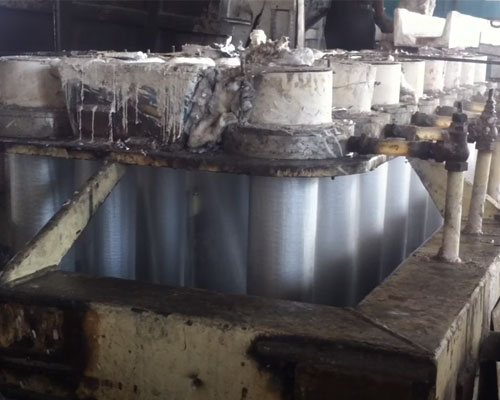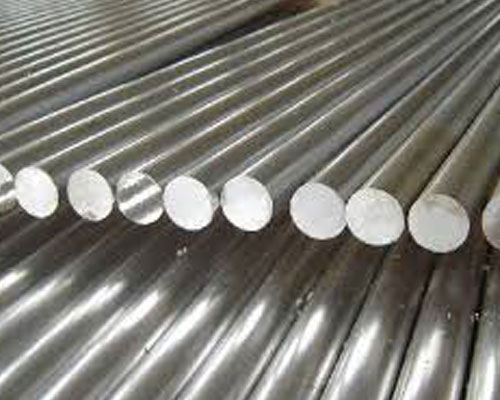Aluminum production process includes extract alumina from bauxite ore, aluminium extrusion process, aluminum alloy manufacturing. Aluminum is mainly used to produce car parts, aircraft components, beverage cans, doors, and aluminum foil. It may also be used as sheet metal, aluminum plate and foil, rods, bars, and wire. The aluminum can be used in the packaging industry, the transportation industry, and the building and construction industry.
Aluminum can be produced from bauxite ore or aluminum scrap. Refinement of aluminum ore is sufficiently expensive, so that the secondary production industry takes up much of the market. Due to high energy requirements, the major primary aluminum producers tend to locate in areas with low energy costs. Secondary producers tend to locate near industrial centers.
Both primary and secondary aluminum producers refine and melt the aluminum, and form aluminum ingots. The ingots are shipped to metal casting plants or other shaping plants for molding or rolling.
Aluminum Production Process from Bauxite Ore
There are three steps for the aluminum production process from bauxite ore.
Extract Alumina from Bauxite Ore
First, the alumina is extracted from bauxite ore, it usually uses the Bayer Process. In the Bayer Process, mix the crushed bauxite and sodium hydroxide, and place it in a container. High temperatures and pressures cause reactions in the ore and sodium hydroxide mixture. The result is dissolved aluminum oxide and ore residue. The residues form a sludge in the bottom of the digester. The aluminum oxide is evaporated off and condensed. Add starches and other ingredients to remove any remaining impurities from the oxide. Move the solution to a precipitation tank for crystallizing the aluminum oxide. And wash the crystals, vacuum dewatered.

Aluminum Extrusion Process
Then, get the aluminum metal from aluminum oxide, it usually uses the Hall-Heroult process. In this process, the aluminum oxide is placed in an electrolytic cell with molten cryolite. A carbon rod in the cell is charged and the reaction results in carbon monoxide, carbon dioxide, and aluminum. The aluminum sinks to the bottom, it is removed from the tank and sent to a melting furnace.
Aluminum Manufacturing Process
The molten aluminum is mixed with desired alloys to obtain specific characteristics, and cast into ingots for transport to fabricating shops. In the fabrication shops, the molten aluminum or aluminum alloys are remelted and poured into casts and cooled. Molten aluminum may be further heated to remove oxides, impurities, and other active metals such as sodium and magnesium, before casting. AdTech offers degassing units and filtering units, hot top casting parts for secondary aluminum producers.

